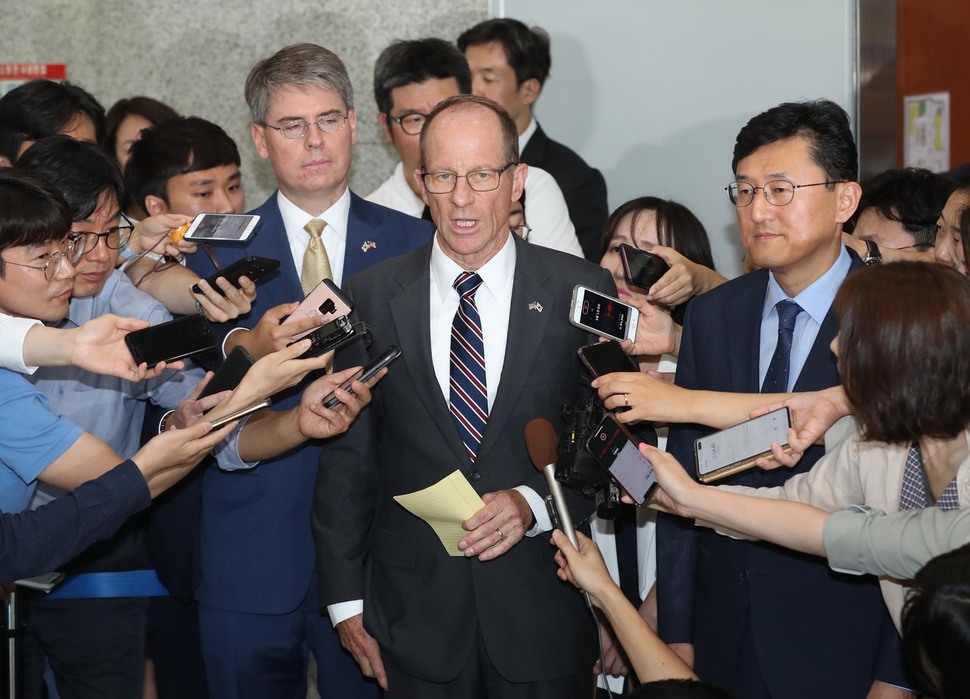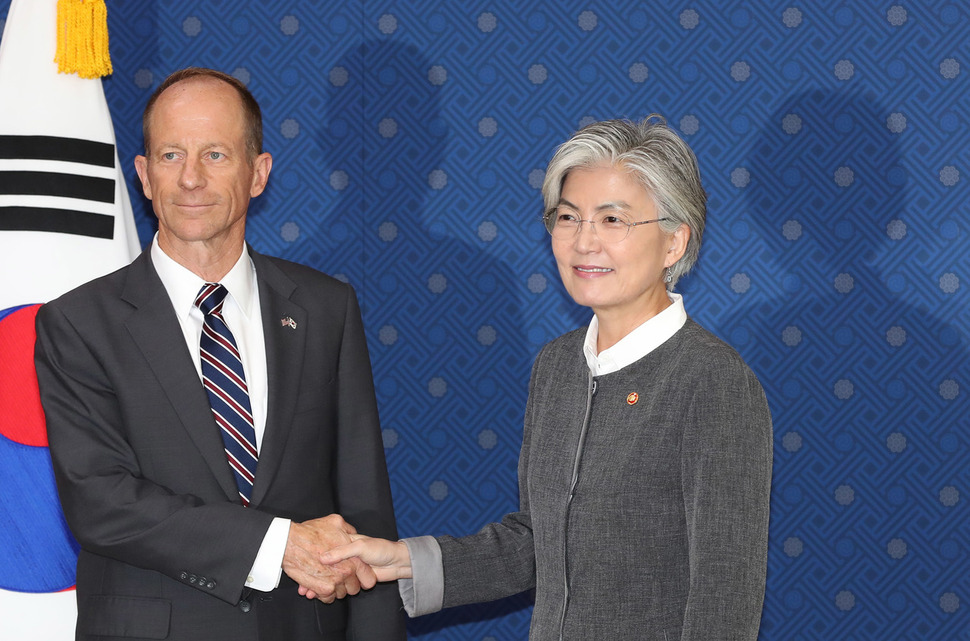 |
|
David Stilwell, US assistant secretary of state for East Asian and Pacific affairs, talks about the current South Korea-Japan trade dispute at the South Korean Ministry of Foreign Affairs in Seoul on July 17. (Kang Chang-kwang, staff photographer)
|
State department’s top diplomat for E. Asia visits SK Ministry of Foreign Affairs
On July 17, the US’ top diplomat for East Asia policy addressed the ongoing conflict between South Korea and Japan, which was intensified by Japan’s recent imposition of retaliatory export controls. “[The] United States is a close friend and ally to both. We will do what we can to support their efforts to resolve this,” said David Stilwell, the new assistant secretary of state for East Asian and Pacific affairs. Stillwell made the remarks following back-to-back meetings with officials from the Blue House and South Korea’s Ministry of Foreign Affairs, which took place at the Foreign Ministry office in Seoul on July 17. “So fundamentally, [the] ROK [South Korea] and Japan must resolve these sensitive matters, and we hope that resolution happens soon,” he said. “The US places a great priority on strengthening relations between our country and our two close allies […] the ROK and Japan. The truth is, no significant issue in this region can be resolved without cooperation between our two allies.” Deputy Foreign Minister for Political Affairs Yoon Soon-gu, who attended the meeting, also reported that “we explained our position, and Assistant Secretary Stilwell said that the US will also strive as much as possible to aid the resolution of this issue by resuming dialogue.” Stilwell’s remarks are taken to mean that South Korea and Japan need to resolve their conflict through dialogue, but that the US will play the role as a “dialogue facilitator.” “After hearing the South Korean side of things, Stilwell said he would look into options after returning to the US. The message that the US had for South Korea and Japan is that this issue needs to be resolved through dialogue,” said an official at the Foreign Ministry. At the same time, it doesn’t appear that the US will take on the proactive role of a mediator under the current circumstances. “The US’ message is that it doesn’t want the situation to get any worse and that it wants South Korea and Japan’s relationship to be quickly repaired,” said Kim Hyeon-uk, a professor at the Korean National Diplomatic Academy, while also noting that “this means that the US won’t be directly intervening to mediate this issue.”
 |
|
South Korean Minister of Foreign Affairs Kang Kyung-wha (right) shakes hands with Stilwell at the South Korean Ministry of Foreign Affairs on July 17. (photo pool)
|







